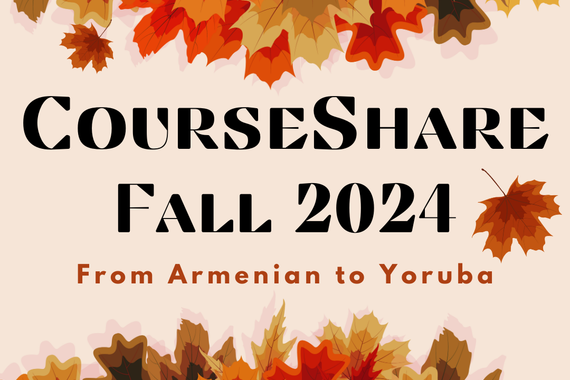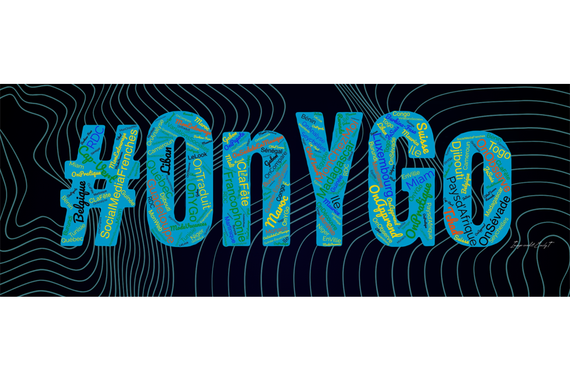Language Collaboratory: Advancing Intercollegiate Dialogue on the Teaching of Language and Cultures
The Language Center is very pleased to announce the creation of The Language Collaboratory, a partnership for the advancement of intercollegiate dialogue on the teaching of languages and cultures, driven by language centers and institutes at the University of Minnesota, as well as the University of Iowa, the University of Michigan, Michigan State University, and the University of Wisconsin-Madison.
The purpose of this initiative is to provide collaborative professional development opportunities for educators of language, culture, and literature at the five institutions. The pandemic offers us opportunities to deepen our existing collaborations through virtual connections across distance and institutions. We are launching a robust professional development series focusing this semester on three challenges – accessibility, inclusivity, and learner autonomy and agency. Representatives from all five institutions will informally address one of these challenges from their perspective as a practitioner or researcher and engage with what we hope to be a stimulating dialog with both their local conversant and the session attendees.
- Accessibility: How can I ensure that my teaching is accessible to all of my students? What do I need to think about?
- Inclusivity: How can I be more inclusive in my teaching? What do I need to consider and address?
- Learner Autonomy and Agency: How can I foster student engagement and autonomy? What does learner autonomy mean in a language learning environment?
Events will be held Monday or Thursday afternoon at 3:30 pm, starting this week!
Is My Language Course Ableist?: Identifying tension between language learning course design and fairness for disabled learners
Thursday, October 1, 2020
3:30 – 4:00 pm CDT
Register Online
Improving the accessibility of disabled learners’ learning environments goes far beyond using accessibility checkers to make sure documents and materials are minimally accessible. In this session we will discuss reflective questions instructors should be asking ourselves and explore possible solutions:
- Are there common language learning outcomes that inherently erect barriers for disabled learners, and what can we do about that?
- Do your favorite go-to tasks and activities ensure equitable participation for all learners?
- How can we evaluate the accessible participatory potential for activities?
Additionally, there are important accessibility concerns that are complicated to navigate in language learning specifically:
- What language should we use for captions on video content?
- What language should we use when adding descriptive alternative text (“alt text”) to images?
Please bring your own questions and share some solutions that have worked for learners in your teaching context.
Presenter: Caitlin Cornell from Michigan State University.
"You're a Teacher, not a Cop": Prioritizing Access in Course Structure
Monday, October 5, 2020
3:30 - 4:00 pm CDT
Register Online
In this session, the presenter will address attendance/participation policies, grading structure, syllabus access statements, and teacher-student communication. The learning table will be guided by the following questions:
- How does traditional pedagogy create barriers to access?
- How do standard institutional approaches to access fall short?
- How can I shift my perspective to prioritize access?
- What does it look like to build access into the core of my course?
- How can I communicate or signal to my students that I prioritize access?
- How does access-centered pedagogy benefit instructors as well as students?
- How can I encourage my colleagues to prioritize access?
- How does remote/online teaching affect approaches to access?
Presenter: Cecil Leigh Wilson, Ph.D. from University of Wisconsin-Madison
If you require accommodation to participate, contact Adolfo Carrillo Cabello at carri093@umn.edu at least three business days prior to the event. All sessions will be recorded and made available after the event.

